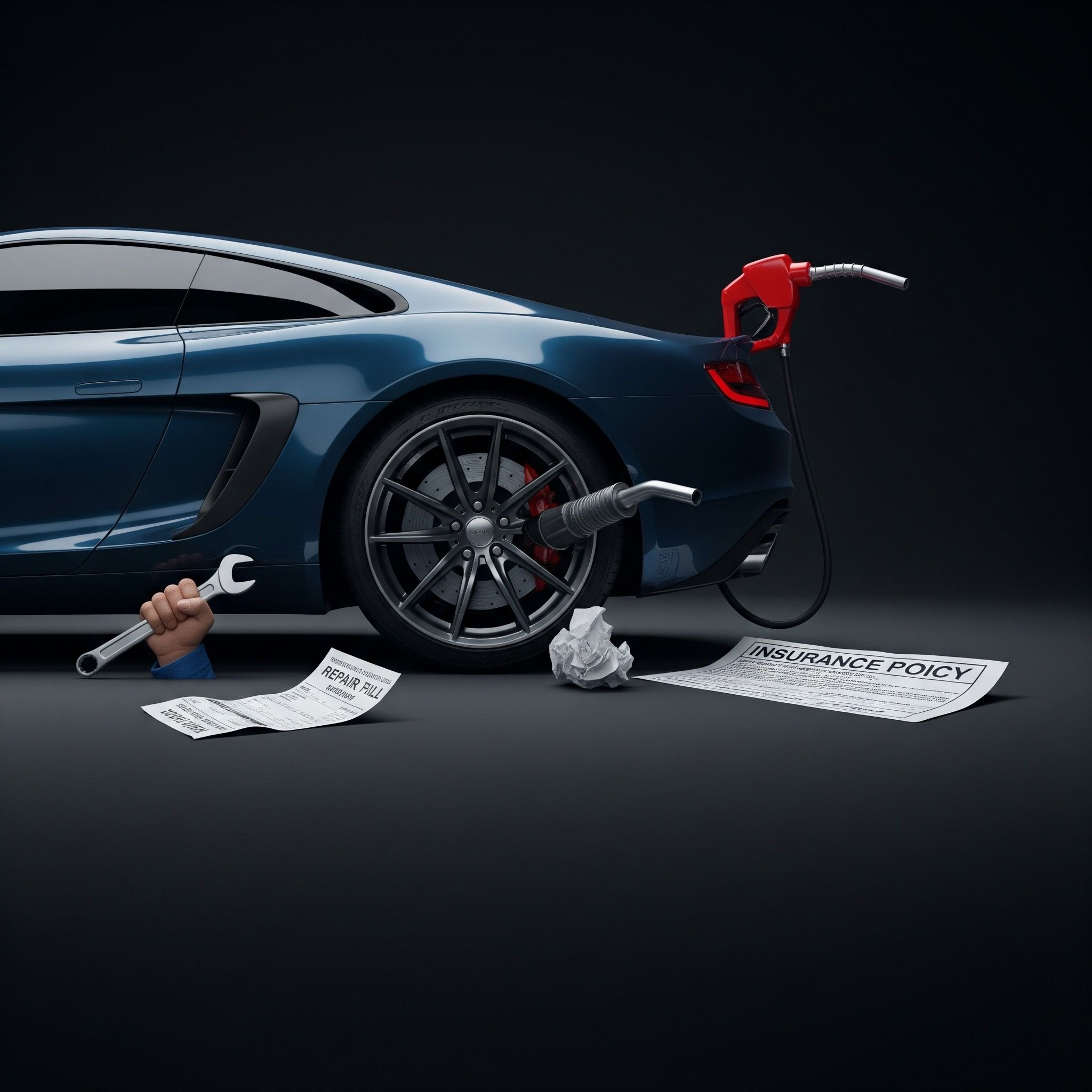The Hidden Costs of Car Ownership: Beyond the Sticker Price

So, you've found your dream car. The price tag looks good, the test drive was smooth, and you're ready to sign on the dotted line. But hold on a second. While the purchase price is the most obvious figure, it's just the tip of the iceberg when it comes to the true cost of car ownership. Many drivers, especially first-time buyers, often overlook a host of recurring and unexpected expenses that can quickly turn their automotive dream into a financial headache.
At CarsXE, we believe in empowering you with complete transparency. Just as we help you uncover a car's history with a VIN check, we want to shed light on the real financial commitment of owning a vehicle. Understanding these "hidden" costs upfront can save you significant stress and money down the road.
Why the Sticker Price Doesn't Tell the Whole Story
Think of buying a car like buying a house. The mortgage is a big chunk, but then come property taxes, utilities, maintenance, and unforeseen repairs. Cars are no different. They're complex machines that require ongoing care and attention, and that comes with a price.
Ignoring these additional expenses can lead to:
- Budget Blowouts: You might find yourself struggling to afford essential maintenance or unexpected repairs.
- Financial Strain: A car meant to bring freedom can become a source of financial burden.
- Compromised Safety: Cutting corners on maintenance due to budget constraints can put you and others at risk.
Let's dive into the costs that often fly under the radar:
Overlooked Expenses That Add Up
Here’s a breakdown of the common hidden costs you need to factor into your car ownership budget:
1. Insurance Premiums: This is perhaps the biggest "hidden" cost that's not really hidden, but often underestimated. Your insurance premium depends on a multitude of factors: your age, driving record, location, the car's make and model, and the type of coverage you choose. Don't just assume a ballpark figure; get actual quotes before you buy the car. A powerful sports car will have vastly different premiums than an economy sedan, even if their purchase prices are similar.
2. Fuel Costs: This seems obvious, right? But daily commutes, weekend trips, and even just running errands add up. Consider the car's fuel efficiency (MPG or MPGe for EVs) and how much you expect to drive. Gas prices fluctuate, and a gas-guzzler can significantly impact your monthly budget, especially with today's market variations.
3. Maintenance and Repairs: This is where many budgets go awry. Regular maintenance (oil changes, tire rotations, fluid checks) is essential to keep your car running smoothly and prevent major issues. However, unexpected repairs – a worn-out brake system, a failing transmission, or even minor electrical glitches – can strike at any time. Older cars, luxury vehicles, and those with complex systems often come with higher repair costs. Research typical maintenance schedules and common issues for the specific model you're considering.
4. Depreciation: The moment you drive a new car off the lot, it starts losing value. This depreciation is a significant, yet often intangible, cost of ownership. While you're not writing a check for it, it impacts the car's resale value. Some cars hold their value better than others. Tools like CarsXE's market value estimator can give you an idea of a car's potential depreciation over time.
5. Registration Fees and Taxes: These vary by location but are unavoidable annual or biennial expenses. They include vehicle registration renewals, license plate fees, and potentially local property taxes on the vehicle. Be sure to check your local Department of Motor Vehicles (DMV) website for specific figures.
6. Parking Fees, Tolls, and Fines: If you live in an urban area, parking can be a significant daily or monthly expense. Toll roads can add up quickly, especially for commuters. And, let's not forget the occasional parking ticket or speeding fine – these unexpected costs can certainly derail a budget!
7. Detailing and Cleaning: While not strictly necessary, keeping your car clean, both inside and out, helps maintain its condition and resale value. Regular washes, waxes, and interior detailing contribute to the overall cost.
How to Budget for the Real Cost of Car Ownership
Avoiding sticker shock for these hidden costs is simple: research and plan.
- Get Insurance Quotes: Before finalizing a purchase, get several insurance quotes for the specific VIN of the car you're interested in.
- Research Fuel Economy: Understand the car's real-world MPG and estimate your monthly fuel consumption based on your driving habits.
- Estimate Maintenance Costs: Look up common maintenance schedules and average repair costs for the make and model. Websites like RepairPal or Edmunds can be helpful.
- Consider a Vehicle History Report: A comprehensive report from a service like CarsXE can reveal past accidents or significant repairs that might indicate future maintenance needs.
- Factor in Depreciation: While you won't pay this directly, it's good to be aware of how much value the car is expected to lose.
- Create a "Car Fund": Set aside a portion of your budget monthly for unexpected repairs and maintenance. This acts as a buffer against unforeseen expenses.
CarsXE: Your Partner in Smart Car Ownership
At CarsXE, we're dedicated to providing you with the tools and information you need to make informed decisions about vehicles. Our VIN lookup service not only helps you avoid errors but also empowers you to uncover critical details about a car's past, including accident history, service records, and potential odometer fraud. By knowing a car's true history, you can better anticipate future maintenance needs and avoid costly surprises.
Understanding the full financial picture of car ownership, beyond just the purchase price, is key to a stress-free experience. Don't let hidden costs catch you off guard – do your homework, budget wisely, and enjoy the open road with confidence!